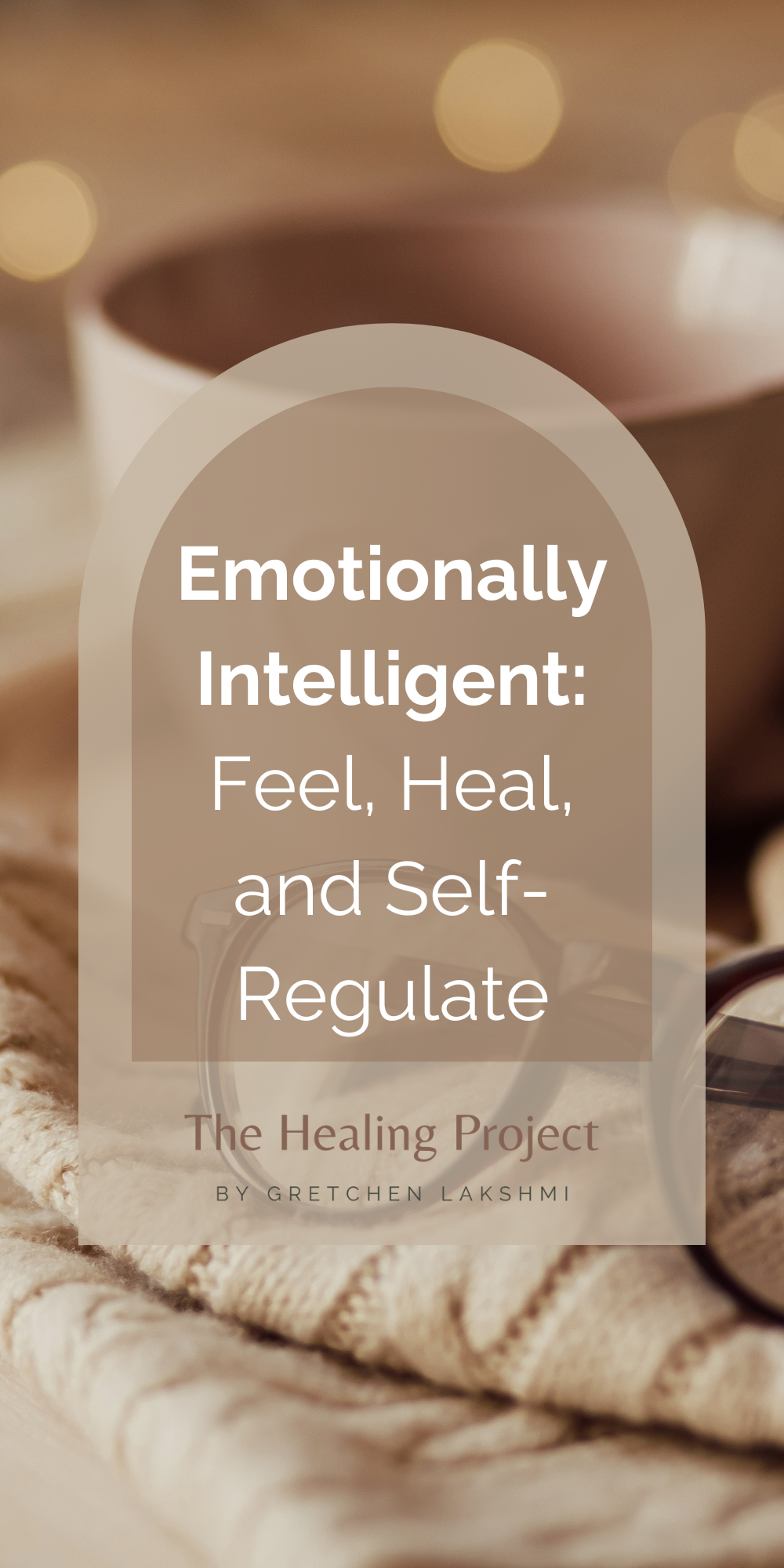Emotionally Intelligent: Feel, Heal, and Self-Regulate
People like to talk a lot about emotional intelligence—but what does it actually mean? Is it just about staying calm under pressure? Knowing the right thing to say? Or it something else?
While I was working on a presentation for a talk and demonstration about emotional intelligence and self-regulation, I realized that the real power of emotional intelligence isn’t about knowing all the right terms and concepts (though that can help)—it’s about knowing yourself.
It’s about being able to pause, feel, and respond in a way that’s true to who you are, instead of reacting from fear, overwhelm, or habit.
But, no one ever teaches us how to do that...

Emotional Intelligence Quotient (EQ)
What Is EQ?
At its core, emotional intelligence (EQ) is a user manual for emotions. It’s the ability to recognize what you’re feeling, understand where it’s coming from, and choose how to respond rather than react.
Even when we don't recognize that we're applying them, it can still help to look at terms and concepts so we can begin to notice where we can gain higher levels of emotional intelligence. These look like:
- Self-awareness – Noticing your internal state without judgment
- Self-regulation – Soothing yourself in times of distress
- Motivation – Channeling your pain into healthy forms of power
- Empathy – Applying compassion toward the feelings of others
- Social skills – Navigating relationships with care and clarity
It’s a personal evolution—a gentle practice of returning to yourself again and again.

Emotional Denial
"I Don't 'Do' Emotions."
If you're someone who feels resistance when it comes to topics like emotions, you're not alone — and it’s not a personal flaw.
Many of us, especially men, have been conditioned to
believe that emotional awareness is unnecessary, weak, or even dangerous to their sense of control.
But EVERYONE HAS EMOTIONS and emotional intelligence isn’t about being overly emotional or vulnerable in ways that make you uncomfortable. It’s about gaining tools for navigating stress, strengthening your resilience, and improving the quality of your relationships (at home, at work, and within yourself).
Building emotional intelligence actually makes you more powerful and adaptable, not less.
The more you understand your own emotional landscape, the less those emotions can control you from the background. You deserve access to that freedom, too.

Emotional Overwhelm
When You've Had Too Much
If you’ve ever felt stuck in a loop of frustration, anxiety, numbness, or shutdown, you’re not alone. Most of us weren’t taught how to be with our emotions. We learned how to stuff them down, avoid them, or explode when they got too big to contain.
That’s where the nervous system steps in. When our capacity to handle emotions is maxed out, we move into survival modes—fight, flee, fawn, or freeze. These aren’t bad. They’re just our body’s way of saying: “This is too much for me right now.”
But living in these states too often can make us feel like we’re constantly bracing for impact. We stay stuck in cycles of anxiety and depression; hypervigilance and dissociation. That’s why self-regulation becomes a superpower.

Self-Regulation
Come Back to Yourself
Imagine your emotions like waves. They rise, crest, and fall. If we can learn to ride them—rather than fear them—we find our way back to calm. Self-regulation doesn’t mean never feeling big emotions; it means having ways to move through them with care.
Here are a few options to help you self-regulate, based on what you might be feeling:
😖 If you’re anxious or overstimulated, then down-regulate:
- Try the once-viral method of box breathing (inhale 4, hold 4, exhale 4, hold 4), it still works even if it's 'old news'
- Do a 5-4-3-2-1 grounding exercise to engage your senses
- Ask yourself: What’s the most loving thing I can do for myself right now?
😞 If you’re shut down or disconnected, then up-regulate:
- Light a candle or diffuse an uplifting scent
- Try gentle somatic movement—sway, stretch, or shake
- Play a song that brings you joy or inspires you
😵 If you’re overwhelmed or distressed, then express:
- Write out a messy “brain dump”—everything on your mind
- Take a brisk walk or exercise to burn off excess energy
- Prioritize and energize towards just one small next step

Anchor Your Healing
One Essential Question
At the heart of all emotional intelligence work—whether you’re just beginning or years into your healing journey—there’s one powerful question that brings us back to ourselves:
What do I need most right now?
This question invites a pause. It invites compassion. And it reminds you that your needs matter—not later, but now. Whether the answer is rest, water, movement, connection, or space—when you listen and respond, you rebuild trust with yourself.
That’s what healing is. It’s not a grand transformation. It’s thousands of micro-moments of choosing yourself again and again.

Emotions Aren’t the Problem
They’re the Messengers
If you’re feeling more emotional lately—more tired, more reactive, more sensitive—it’s OK. It doesn’t mean you’re broken or failing. It might mean you’re finally letting yourself feel. It might mean your body is asking for a different kind of care.
And that’s not weakness—it’s wisdom.
So today, I invite you to check in.
Take a breath. Put a hand on your heart. Ask the question.
What do I need most right now?
Then, if you can… give it to yourself.
You are worthy of that kind of love.
Wishing you the ability to safely feel,
Gretchen
SOMATIC TRAUMA SPECIALIST + ENERGETIC INTUITIVE

SHARE ON PINTEREST








